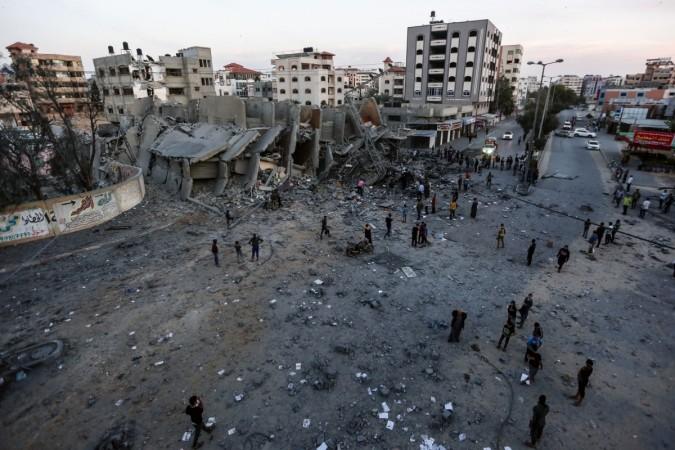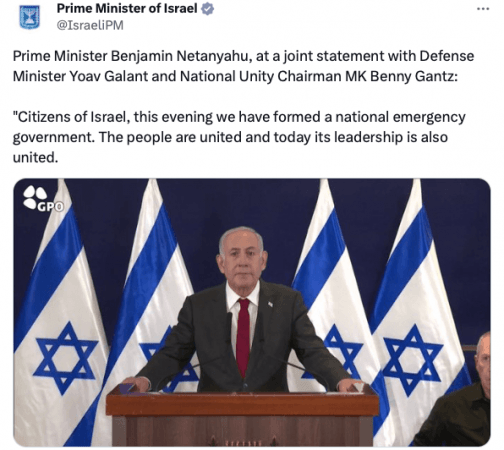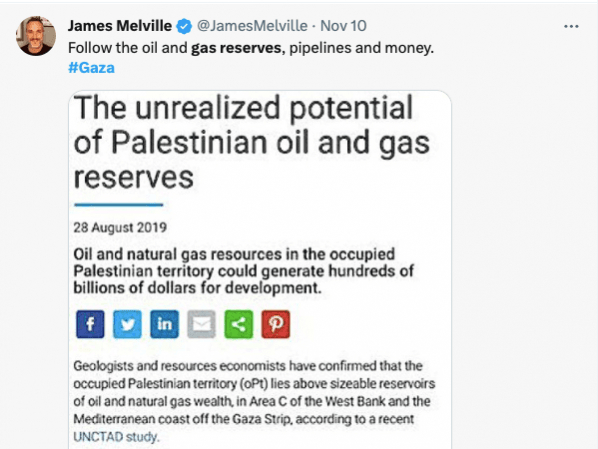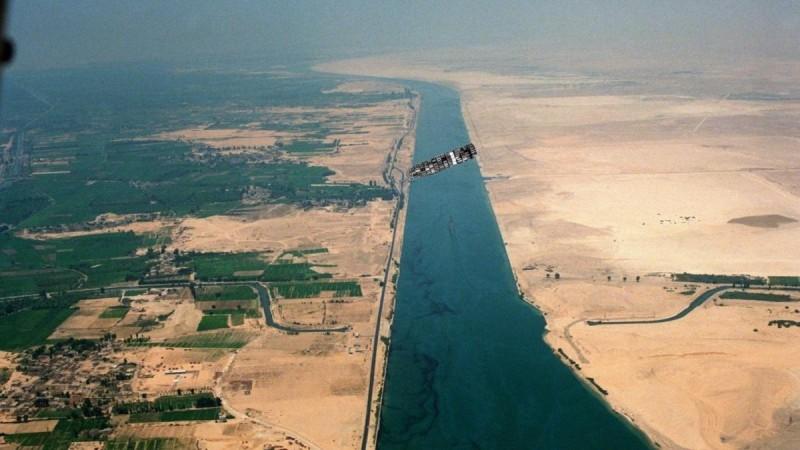
What's in it for Israel? As Tel Aviv unleashes lethal violence on Gaza, bombing hospitals, ambulances, schools, many question the real motives of Israel and whether it is merely set out to avenge the terrorist attack on Oct. 7 or more. As most of the western world, including the US and Europe, continues to support Israel's military actions, many wonder what's in it for them.
As images of fleeing residents traveling on a road marked by Israel as "safe route" to an airstrike that had hit the crowded Jabalia refugee camp have escalated the fear of violence, pro-Palestine activists and influencers are pleading for a permanent ceasefire. But Israel's intentions ever since the siege began remain unaltered with vengeance over the Oct. 7 attacks and hostage torture stories emanating from the freed Israelis.

Human Rights Watch says, "Israel's attacks on Gaza hospitals should be investigated as war crimes." The death toll from the Israeli-Hamas conflict stands at about 20,000 people while Gaza's health ministry says there have been more than 53,300 people wounded in the conflict. The WHO points to the growing risk of disease because of a lack of clean water, food and medicine.
Business as usual for Israel
But, it is business as usual for Israel which granted 12 licenses to six companies to explore natural gas off the country's Mediterranean coast on October 30. Soon after the licenses were awarded, Energy Minister Israel Katz said that the investment by large natural exploration companies was a sign of "confidence in Israel's resilience." He also added, "The winning companies have committed to unprecedented investments in natural gas exploration over the coming years, in the hope of discovering new natural gas reserves."
Is it largely about the gas reserves?
A 2019 UNCTAD report states, "Geologists and natural resources economists have confirmed that the Occupied Palestinian Territory lies above sizable reservoirs of oil and natural gas wealth, in Area C of the occupied West Bank and the Mediterranean coast off the Gaza Strip." These gas fields discovered on the Mediterranean coast in recent decades are valued at a whopping $524 billion in 2019. However, Israel cannot claim to have sole rights over the reserves, as per the report.
A notable part of the $524 billion reserves is located within the Occupied Territory of Palestine and much of the rest lies outside national borders in the sea, making it a shared property of all the relevant parties. The UN report questions the rightful ownership of these resources, considering that they took millions of years to form and Palestinians occupied the land the whole time unlike Israel's recent creation.
The report also notes that it is a war crime to deny citizens the use of its natural resources by any occupying regime, including diversion of Palestine's water supply, fisheries, agricultural land and olive groves.

This is clearly the scale of reserves that could end Israel's energy dependency and any gaps in Europe's supplies. Ever since Israel was created in 1948, the US and Israel have been key allies, their ties strengthening with each passing year. As per US-Israel energy cooperation agreement, "US-Israel energy cooperation agreement and the development of natural resources by Israel are in the strategic interest of the United States." For a trade-off with the US ensuring Israel on all safety and security issues.
Natural gas — the next big thing after oil reserves?
With oil reserves running dry and the noise around climate and environment relegating coal to backburner, natural gas or LNG is the next big thing. A flex in the political world for economic independence and diplomatic clout.
The natural gas reserves in the Gaza Marine aren’t israeli, they belong to Palestinians, except Palestine is in the way | via @IAMSHO_NUFF pic.twitter.com/xHXmGus2qI
— Sarah Wilkinson (@swilkinsonbc) November 13, 2023
Ben Gurion Canal Project

One of the widely speculated reasons happen to be of US wanting to build a nuclear derived Suez Canal like project or competitor through Gaza. Why else would the US, UK, EU support a state and its cause which has been openly criticized by the UN over repeated violation of international laws?
Tiktoker Celine Lilas first put forward this theory that has gained tremendous traction on social media. She says that one of the reasons Israel wants to eliminate Hamas and take complete control of the Palestinian enclave is for the vast economic opportunities that have been talked about for decades. However, in order for that to happen there needs to be complete peace and political stability.
An alternative to the Egypt-controlled Suez Canal will be to cut a canal through Israel's Negev Desert (from the tip of the Gulf of Aqaba, eastern arm of Red Sea) jutting into Israel's southern tip, Jordan and finally to the Eastern Mediterranean Coast. She argues that the US's support for Israel is mainly to help build a shipping canal and connect the Gulf of Aqaba to the Mediterranean Sea, thereby, providing a highly profitable alternative to Suez Canal which can also be leveraged for geopolitical control. However, building this canal faces a few hurdles as Gaza Strip being is in the way.
Why an alternative to the Suez Canal?
Suez Canal, built in 1869 by France and Egypt, connects the Red Sea and Mediterranean Sea. A crucial and indispensable part of global trade ever since, this canal allows ships to directly sail from Asia, Middle East to Europe and Americas.
Currently the Suez Canal is an Egyptian state-owned authority and this June, it reached revenues of a record $9.4 billion. "For the first time in the cana;s history, the authority has achieved revenues of about $9.4 billion," Chairman Osama Rabea said then during a press conference.
Ten per cent of the world's fossil fuel exports pass through the Suez with US, UK depending on these exports. With Israel pushing millions of Palestinian refugees into Egypt, many of the economic and geopolitical issues would be solved with the building of an alternative to Suez.
The Ben Gurion Canal Project was started in 1963, with a plan to use 520 nuclear devices. This was to be a far more efficient two-way canal. But despite the support and means to build it, Israel has never built as Gaza Strip is right in the way. If a canal was to circumvent the Palestinian territory, not only would it take billions of dollars more but also be vulnerable to Hamas attacks.
Does the theory hold up?
While a few on social media believe it does, many experts have opined that it's far-fetched. Climate journalist Will Lockett, says in 'Planet Earth and Beyond' that Ben Gurion Canal would be, "utterly unfeasible" for several economic reasons. He reasons that Egypt could either build a new canal or parallel to Suez at one third of the price. Thus, the entire brouhaha around this theory has been negated.
"Both the US and UK relations are vital to securing their energy...Israel has seen some of the world's largest recent discoveries of gas and oil. These new discoveries have kict-started foreign investment into drilling and exploration rights," adds Lockett. And this brings the argument back to Israel's natural gas drilling rights to UK-based BP and Italy-based Eli, and no more for now.









